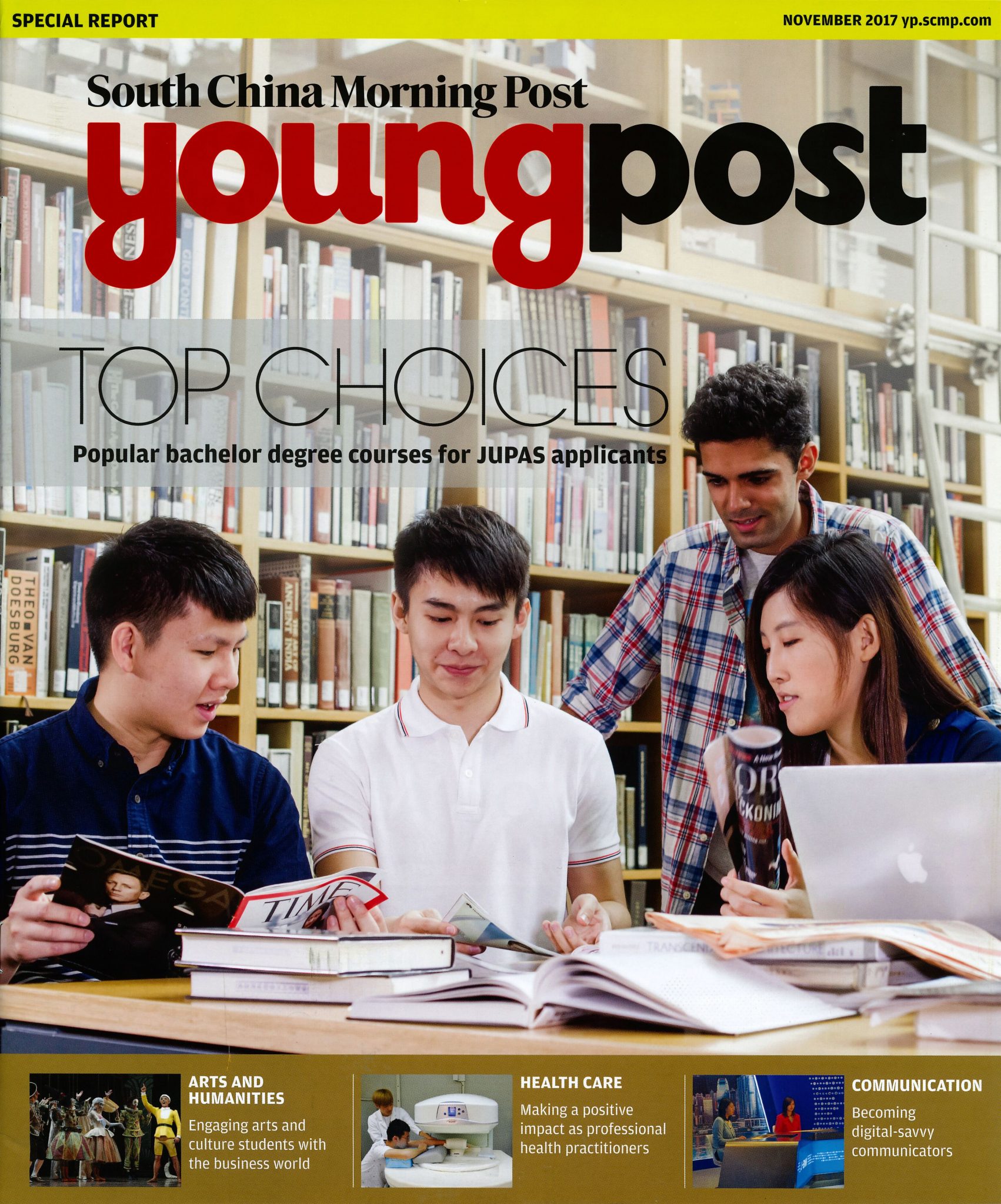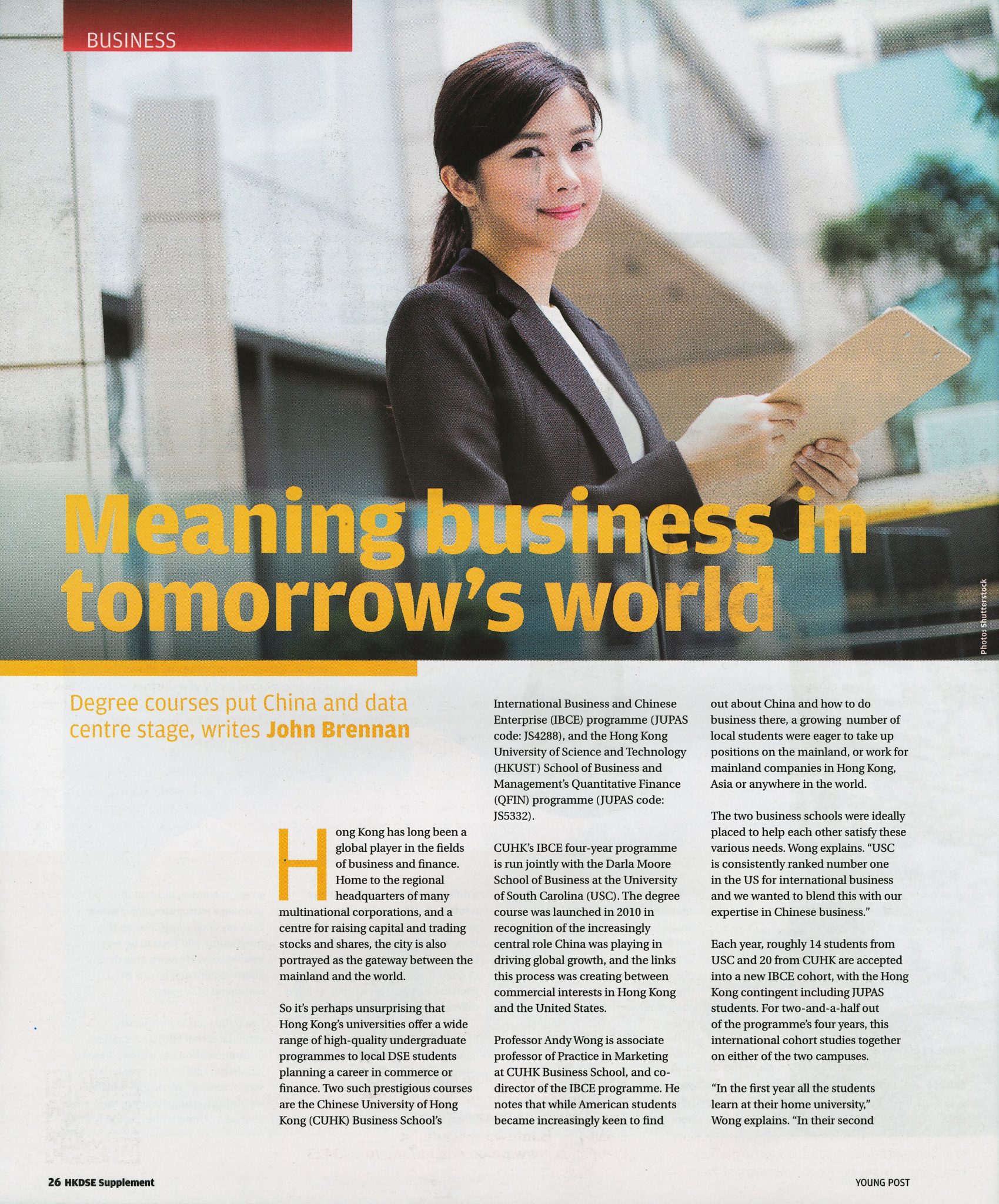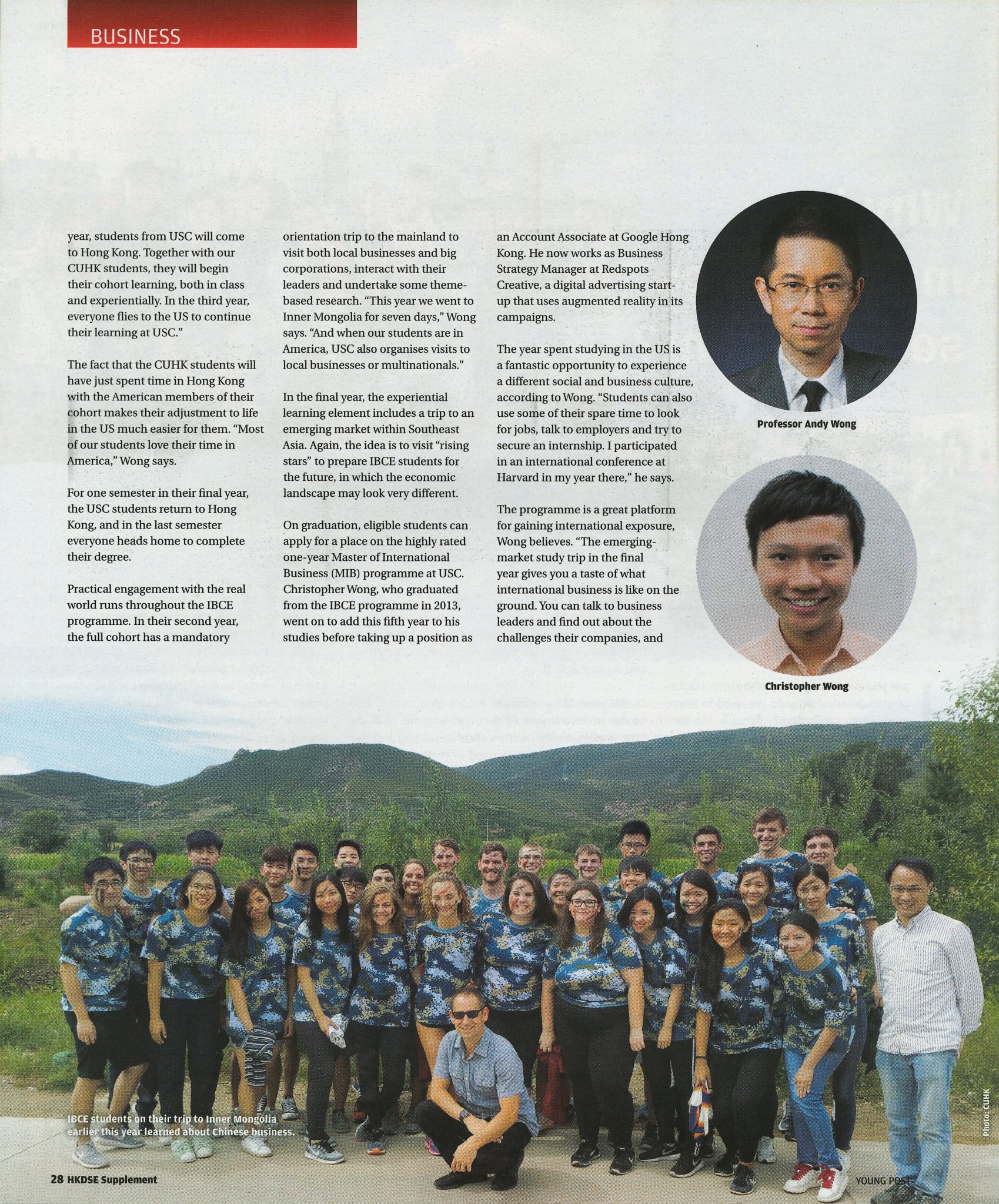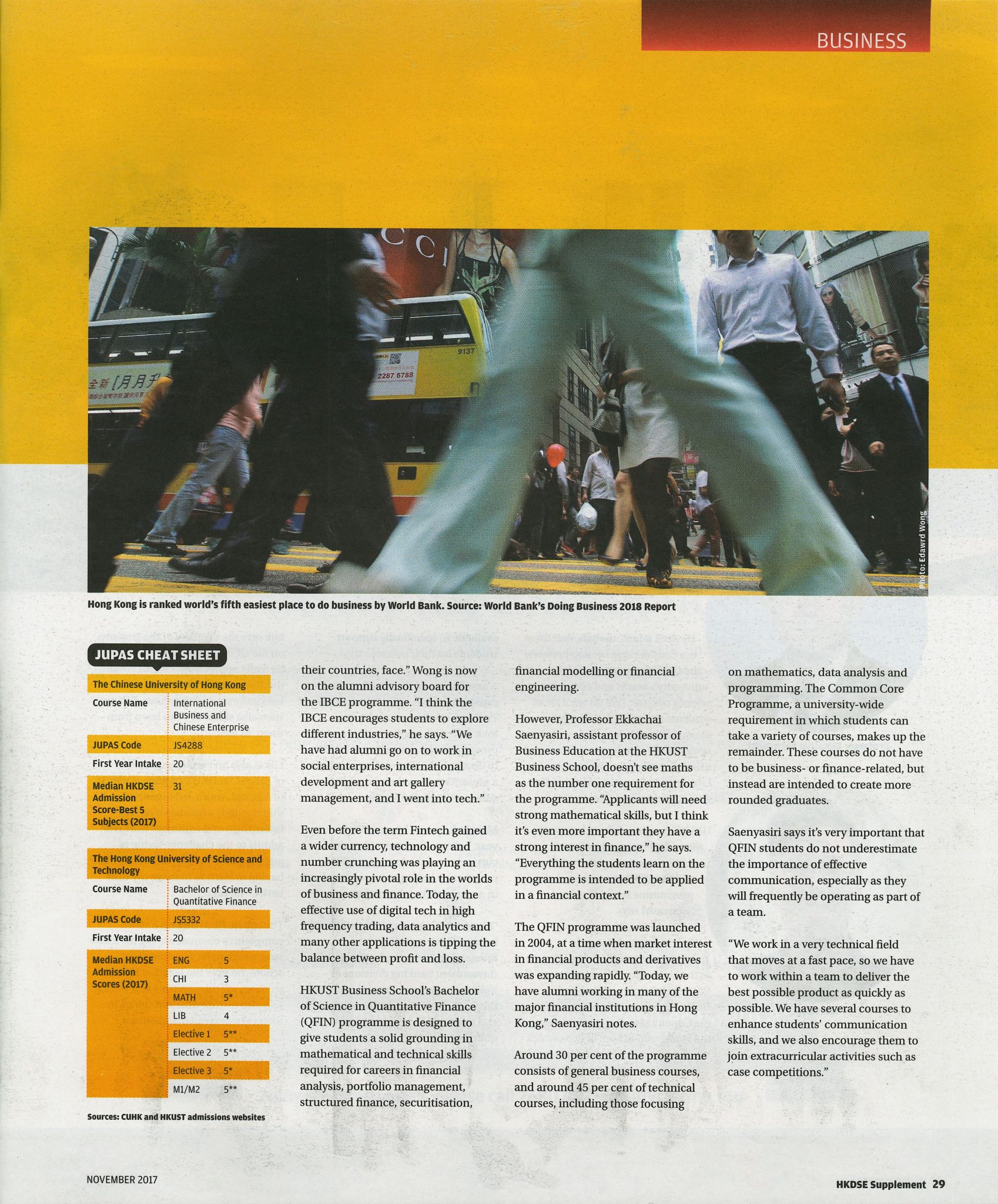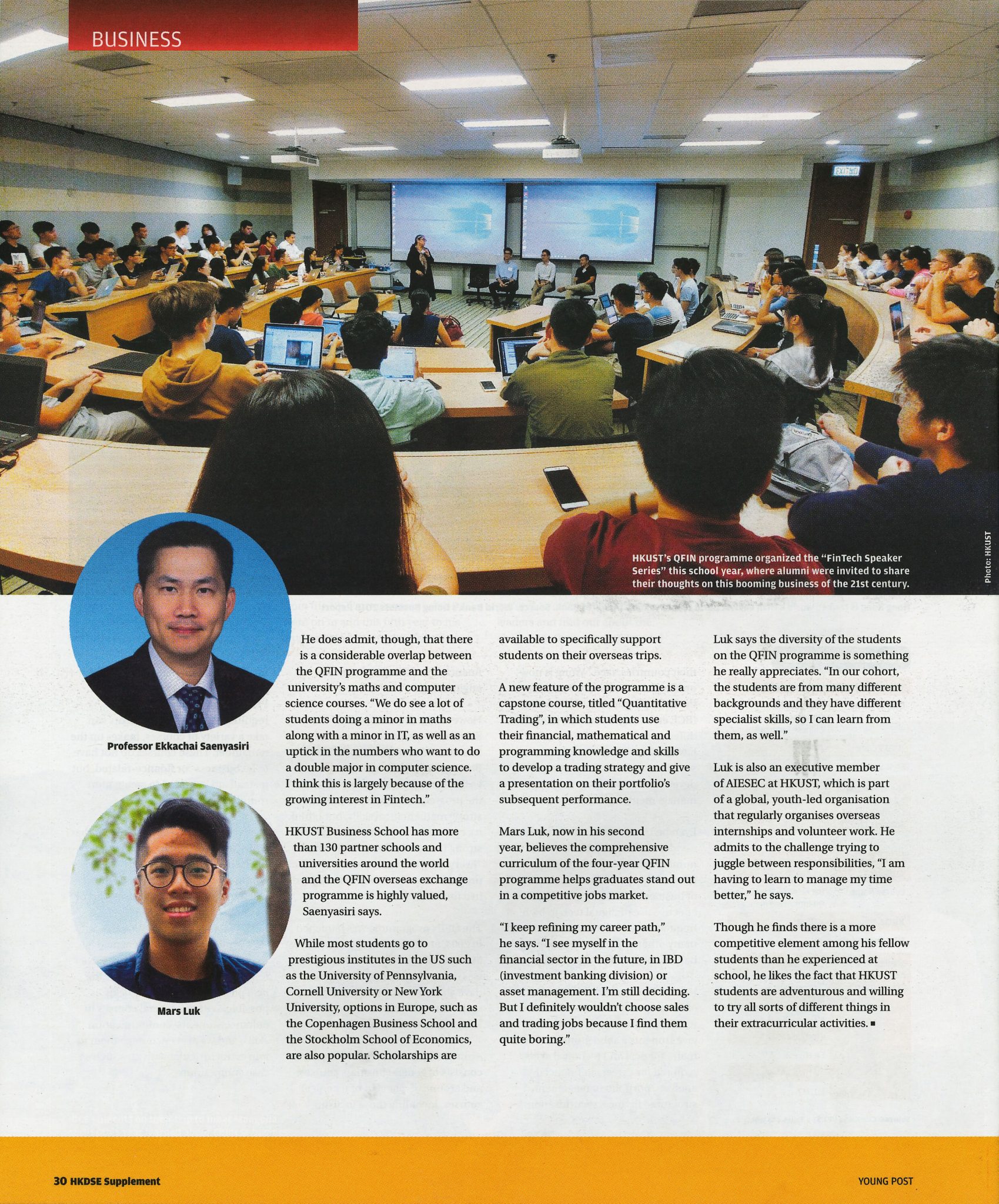Meaning Business in Tomorrow’s World
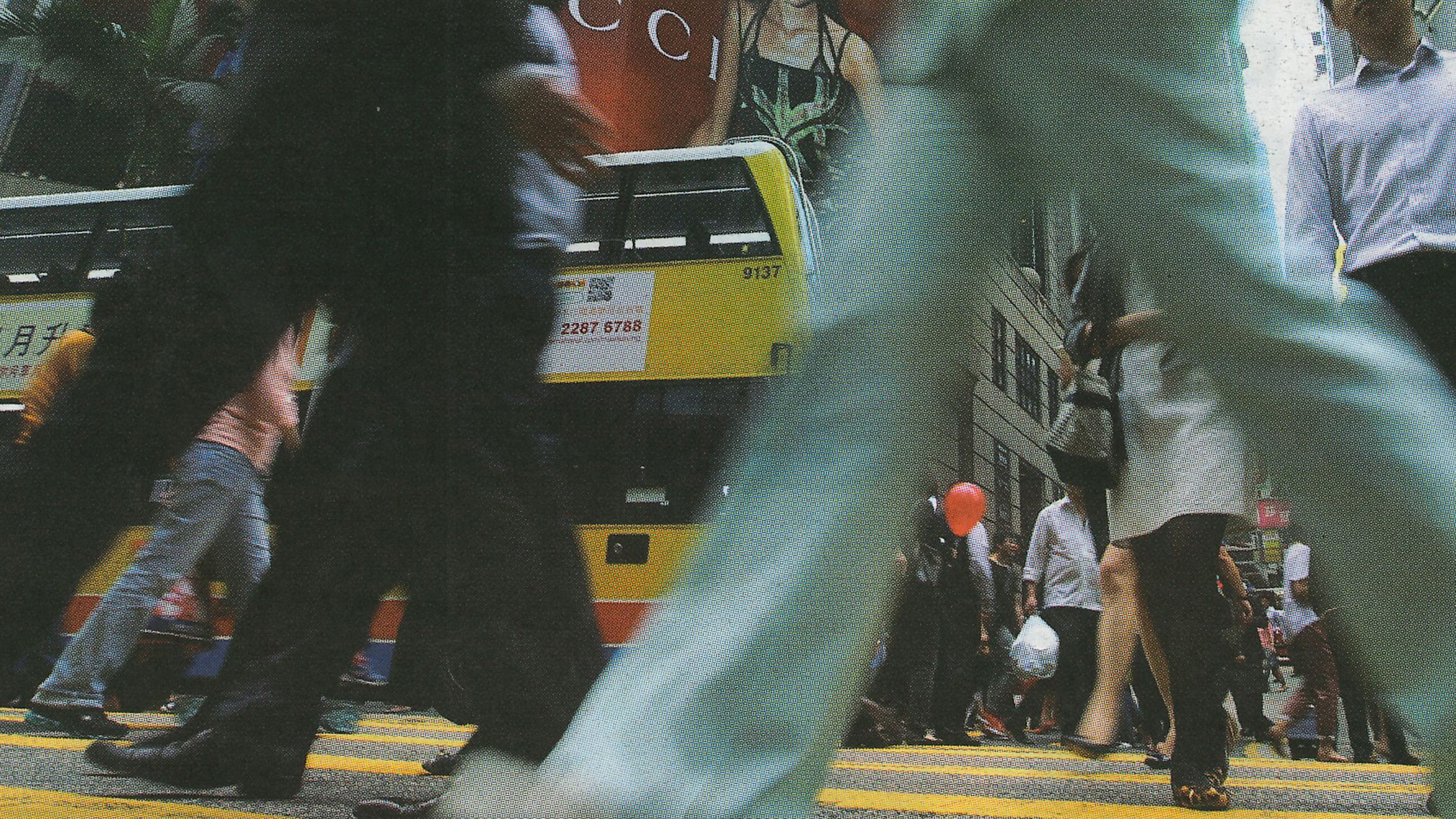
CUHK Business School alumnus Christopher Wong shares with South China Morning Post that the IBCE programme is a great platform for gaining international exposure, and it encourages students to explore different industries.
Hong Kong has long been a global player in the fields of business and finance. So it’s perhaps unsurprising that Hong Kong’s universities offer a wide range of high-quality undergraduate programs to local Hong Kong Diploma of Secondary Education Examination (HKDSE) students planning a career in commerce or finance.
The International Business and Chinese Enterprise (IBCE) undergraduate programme (JUPAS code: JS4288) is jointly run by The Chinese University of Hong Kong (CUHK) Business School and the Darla Moore School of Business at the University of South Carolina (USC). The programme was launched in 2010 in recognition of the increasingly central role China was playing in driving global growth, and the links this process was creating between commercial interests in Hong Kong and the United States. In an interview with South China Morning Post‘s Young Post, Professor Andy Wong, Associate Dean (Undergraduate Studies), Associate Professor of Practice in Marketing and Co-director of the IBCE programme at CUHK Business School explains, “USC is consistently ranked number one in the US for internal business and we wanted to blend this with our expertise in Chinese business.”
Each year, roughly 14 students from USC and 20 from CUHK Business School are accepted into a new IBCE cohort. “In the first year all the students learn at their home university,” Prof. Wong says. “In their second year, students from USC will come to Hong Kong. Together with our CUHK students, they will begin their cohort learning, both in class and experientially. In the third year, everyone flies to the US to continue their learning at USC.” The fact that CUHK Business School students will have just spent time in Hong Kong with the American members of their cohort makes their adjustment to life in the US much easier for them. “Most of our students love their time in America,” Prof. Wong says.
Practical engagement with the real world runs throughout the IBCE programme. In their second year, the full cohort has a mandatory orientation trip to the mainland to visit both local businesses and big corporations, interact with their leaders and undertake some theme-based research. In the final year, the experiential learning element includes a trip to an emerging market within Southeast Asia. The idea is to visit “rising stars” to prepare IBCE students for the future, in which the economic landscape may look very different. On graduation, eligible students can apply for a place on the highly rated one-year Master of International Business program at USC.
Christopher Wong, who graduated from the IBCE programme in 2013, believes the programme is a great platform for gaining international exposure. “The emerging-market study trip in the final year gives you a taste of what international business is like on the ground. You can talk to business leaders and find out about the challenges their companies, and their countries face.” Wong is now on the alumni advisory board for the IBCE Programme. “I think IBCE encourages students to explore different industries. “We have had alumni go on to work in social enterprises, international development and art gallery management, and I went into tech,” Wong shares.
Please click the image below to view the full article.
Source: South China Morning Post
Date published: November 2017
Photo: Edward Wong/SCMP


